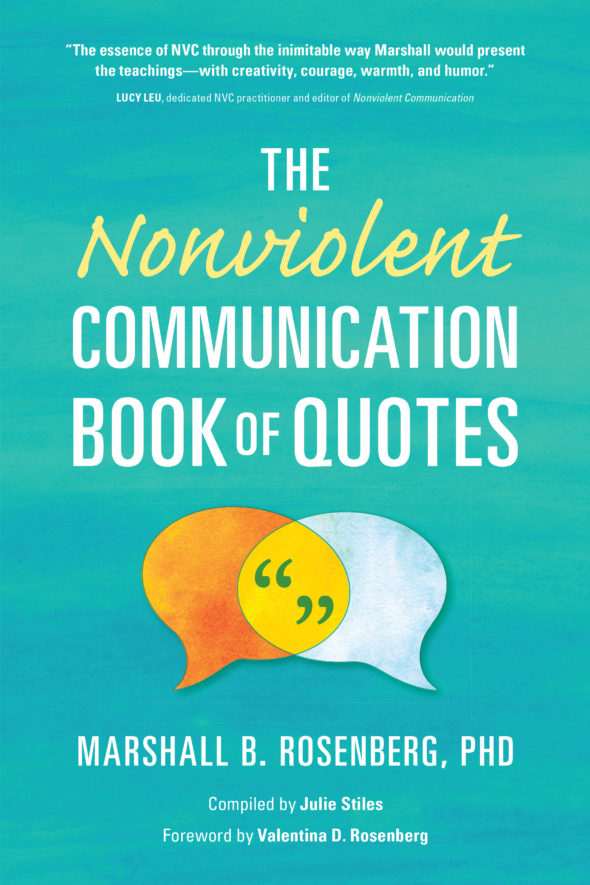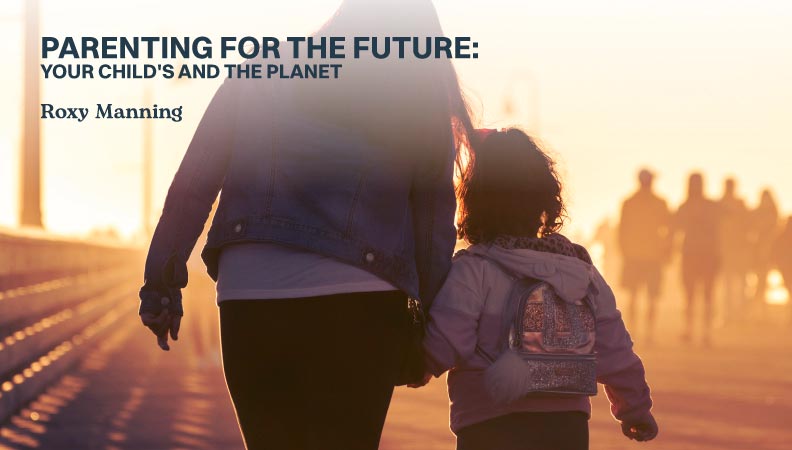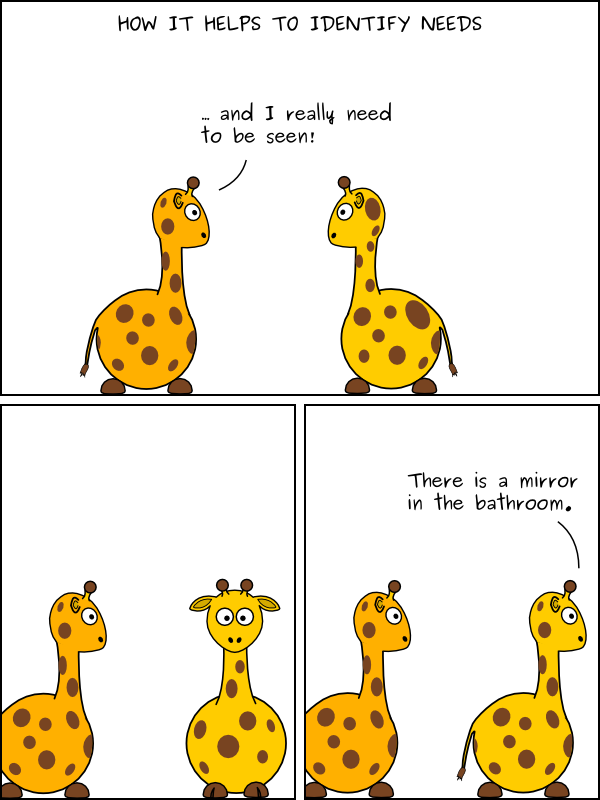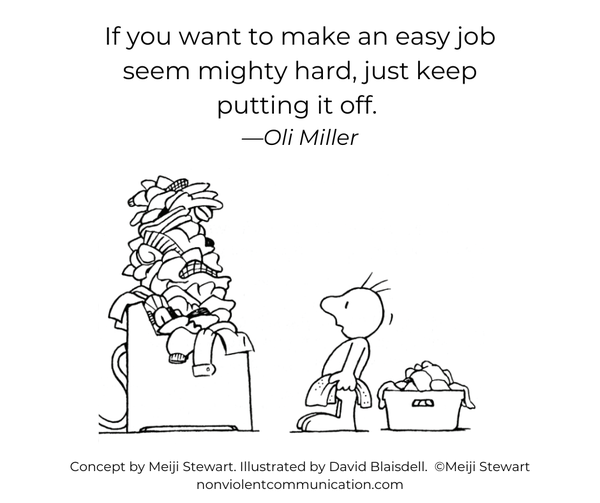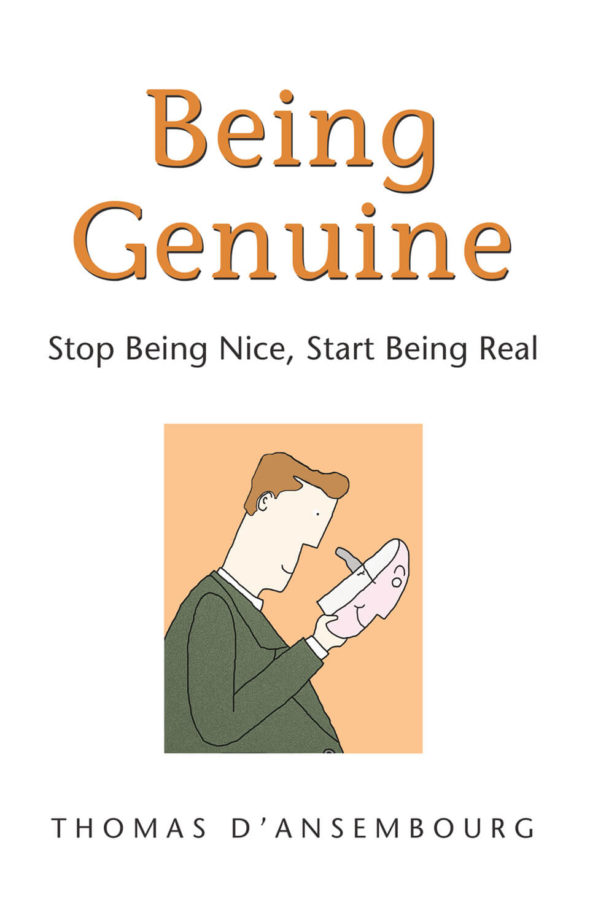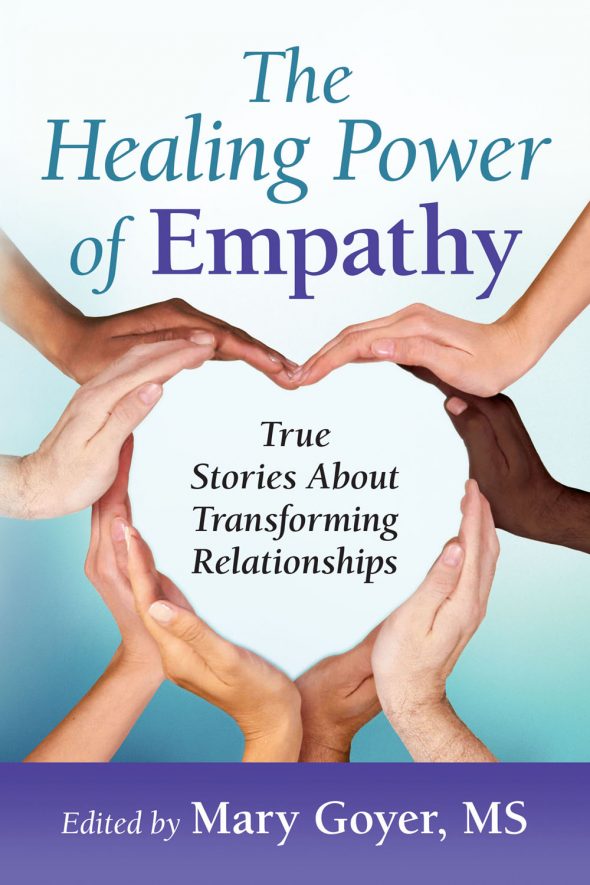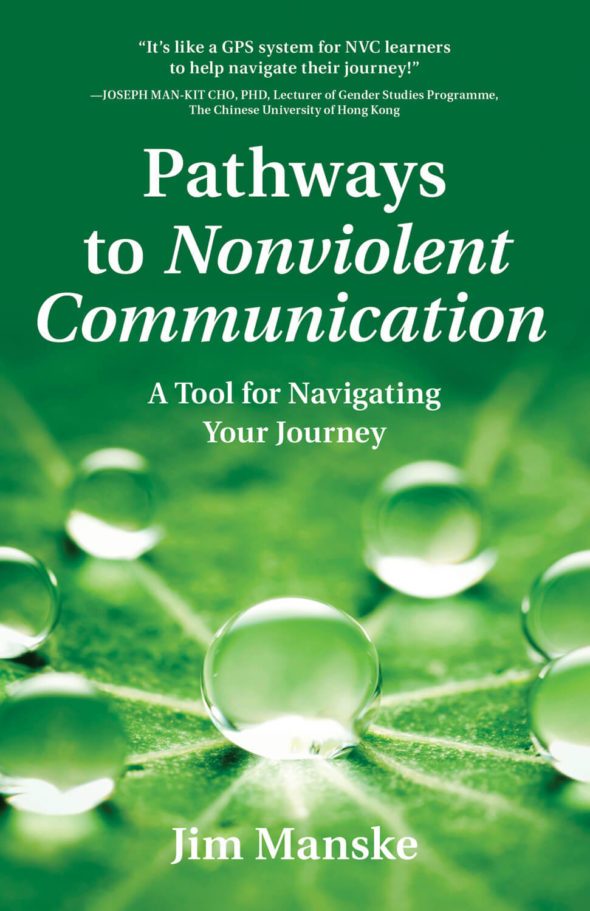|
|
|
|
NVC Monthly NewsletterAugust 2023 |
We hope you find value in the resources we are providing today! We invite you to share with friends, family, colleagues, and others, if you believe they might also find value in this. Our most recently featured topic is written on RAISING TEENAGERS. Our website
covers over 45 different topics from an NVC perspective-all written by a senior certified trainer on behalf of PuddleDancer Press. Please read some to learn more. If you are new to Nonviolent Communication please visit our page on the basics of Nonviolent Communication. Please stay safe and healthy! Thank you :) PuddleDancer Press
What You'll Find in This Month's Newsletter:Events - New Book! - The Nonviolent Communication Book of Quotes
- Course - Parenting for the Future - Your Child's and the Planet - Roxy Manning
Articles - Nonviolent Communication and Raising Teenagers
- How Nonviolent Communication Can Change Your Relationship
- Nonviolent Communication based mediation: Practice insight
Book Specials 80% OFF both full Retail and eBooks Price - Being Genuine
- Graduating from Guilt
- The Healing Power of Empathy
- Pathways to NVC
Distance Learning Opportunities - NVC
Academy
- The Center for Nonviolent Communication Trainings
Book Excerpts - Being Genuine - Chapter 1
- Graduating from Guilt - Chapter 1
- The Healing Power of Empathy - 3 Stories
- Pathways to NVC - Chapter 1
Handouts - Downloads
- Recommended Links
Humor - ANVC(Almost Nonviolent Communication) Cartoons
- PuddleDancer Press Cartoon
Peaceful Daily Reflection/Meditation - Empathy Doesn't Mean Agreement
Poem - It's Never Too Late To...
Resources - Becoming a CNVC certified trainer
- Guidelines for Sharing NVC for Individuals who are not Certified Trainers
NVC Resources - NVC TIP SERIES (Free daily and weekly tips)
- FREE RESOURCES
- NVC FACEBOOK GROUPS
- NEW ** NVC LINKEDIN GROUPS ** NEW
|
New Title! - The Nonviolent Communication Book of Quotes Now 30% off retail!
A comprehensive collection, The Nonviolent Communication Book of Quotes by NVC founder Marshall B. Rosenberg draws not only from other books and interviews, but also from the internet and previously unpublished workshops. It
illuminates his revolutionary four-part Nonviolent Communication (NVC) process and shows the myriad ways NVC makes life more wonderful through the joy of compassionate giving. This essential compilation invites us to transform our lives, our work, our world.
Course - Parenting for the Future - Your Child's and the Planet - Roxy Manning
- Increase the chances of a ripple effect that will shape a purposeful and joyful future
- Identify your most treasured values that you hope your children will embrace
- See how your values serve as a guiding compass for your parenting choices
- Discover how to apply this lens to all your parenting dilemmas!
Wednesdays, August 9-30, 2023 (four sessions)
9:00-11:00am Pacific (California)
Time |
"Regardless of our many differences, we all have the same needs. What differs is the strategy for fulfilling those needs." Marshall Rosenberg |
Nonviolent Communication and Raising Teenagers |
In this article we look at the connection between Nonviolent Communication (NVC) and the important and sometimes challenging task of raising teenagers. NVC is a process that focuses on creating a high quality of connection through empathy and honesty. When we are connected, good-will is easier to access, and mutually satisfying outcomes are more readily attainable. NVC gives you the
best tools for communicating effectively with your teen. However, NVC is not a magic wand! NVC is a set of powerful tools — and there is a difference between having tools and being skillful with them! Even if the best time to begin developing your skills was before your child was born, the second-best time is now! Set your intention to develop these skills, and let’s look next at some principles that will guide you in creating a caring and
satisfying connection with your teen. Read More
How NVC Can Change Your Relationship by Sanjana Gupta
Nonviolent communication is a communication strategy that focuses on honestly expressing your deepest feelings and needs to someone, and being able to empathetically listen to theirs. This form of communication was developed by a clinical psychologist named Marshall Rosenberg in the 1960s to address inner-city violence in his hometown of Detroit, though it can be helpful to use in every type of relationship, romantic relationships in
particular...
Nonviolent communication based mediation: Practice insight by Daniella Arieli
The goal of NVC is to establish genuine connections between people, including opponents, based on the assumption that – when sincere communication between rival parties has been established – the dispute will be transformed. The core principle of NVC is focusing on both parties' humanity and needs, instead of their opinions or interpretation of the situation. Maslow identified the essentiality of the satisfaction of
basic needs, and grouped basic ones under five hierarchical headings: Physiological; safety; belonging/love; esteem and self-actualization. Sites further developed this concept, defining eight needs that must be met in order to produce nondeviant, nonviolent individual behavior. Later developments tend to define a broad range of needs – neither hierarchal nor mutually exclusive – that support each other. Several scholars argue that unrecognized, nonnegotiable needs are the root of most
intractable conflicts... |
"With NVC, we’re not trying to be nice, we’re trying to be real. We are trying to be honest about what goes on in us." Marshall Rosenberg |
It's Never Too Late To:
Apply yourself. Be happy. Change your future. Do what you love. Enjoy what you have. Face your fears. Go the extra mile. Have more fun. Inspire and encourage. Jump-start possibilities. Knock the 't' off can't Live your best life. Mend a quarrel. be Nonjudgmental. Open new doors. Practice what you preach. Question your priorities. Realize how lucky your are. Start over. Take a leap of faith. Uncover your talents. Value friends and family. Wonder more, worry less. Xpress your truth kindly. say YES, more often. be Zany. © Meiji Stewart |
"I believe that the most joyful and intrinsic motivation human beings have for taking any action is the desire to meet our needs and the needs of others." Marshall Rosenberg |
"Any need we have for ourselves, we have for everybody in the world." Marshall Rosenberg |
ANVC (Almost Nonviolent Communication) Cartoons |
Being Genuine - Chapter 1 |
Graduating from Guilt - Chapter 1 |
The Healing Power of Empathy - 3 Stories |
Pathways to Nonviolent Communication - Chapter 1 |
"When people hear needs, it provokes compassion. When people hear diagnosis, it provokes defensiveness and attack." Marshall Rosenberg |
CNVC is committed to the vision of a critical mass of the world's population using Nonviolent Communication (NVC) to resolve differences peacefully. A strong community of qualified trainers will play an important role in the realization of this goal.
|
"The more ugly the judgment, the more beautiful the need." Marshall Rosenberg |
The NVC Academy offers hundreds of affordable online personal growth courses and resources to learn Nonviolent Communication from home.
|
The Center for Nonviolent Communication
The Center for Nonviolent Communication (CNVC) is a global organization that supports the learning and sharing of Nonviolent Communication (NVC), and helps people peacefully and effectively resolve conflicts in personal, organizational, and political settings.
|
"Four D’s of Disconnection; (1) Diagnosis (judgment, analysis, criticism, comparison); (2) Denial of Responsibility; (3) Demand; (4) Deserve-oriented language." Marshall Rosenberg |
Stay Connected to the Values of Compassion With the Free 365 Daily Peaceful Living Meditations.
It is the mark of an educated mind to be able to entertain a thought without accepting it. —Aristotle
Empathy Doesn't Mean Agreement Sometimes, people tell me that they can’t empathize with someone because they don’t agree with them. An example could be a teenager who tells her parents that they don’t care about her. Or a friend who tells you that you were late, even though you thought you were right on time. Remember that empathy is about being present to a person’s feelings and needs. It is acknowledging another’s
experience, not necessarily agreeing with it. If you have a different opinion than the other, empathize with her first. Then, state your feelings and needs with regard to the situation. For example, if your teenager tells you that you don’t care about her, you might consider saying, “Are you feeling hurt because you want to know that I care as much about your needs as mine?” Once you’ve heard her out, you could say, “Wow, I’m really surprised and sad to hear this because I love you so much, and
I sometimes lose myself because I’m so focused on helping you. Will you tell me what you heard just now from me?” Remind yourself today that empathizing with someone does not constitute agreement. |
- NVC TIP SERIES (Free daily and weekly tips)
- FREE RESOURCES
- NVC FACEBOOK PAGES
We hope you find value in our monthly newsletters. We would love to receive ANY feedback or suggestions you may want to share. Please let others know about our newsletter to help spread nonviolent communication, love, hope, humor and compassion, if you are willing :)
We want a more compassionate, equitable, peaceful, safe and healthy world.
Please be safe!
Warmly,
PuddleDancer Press
|
|
|
|
|
|
|
|
|
|


